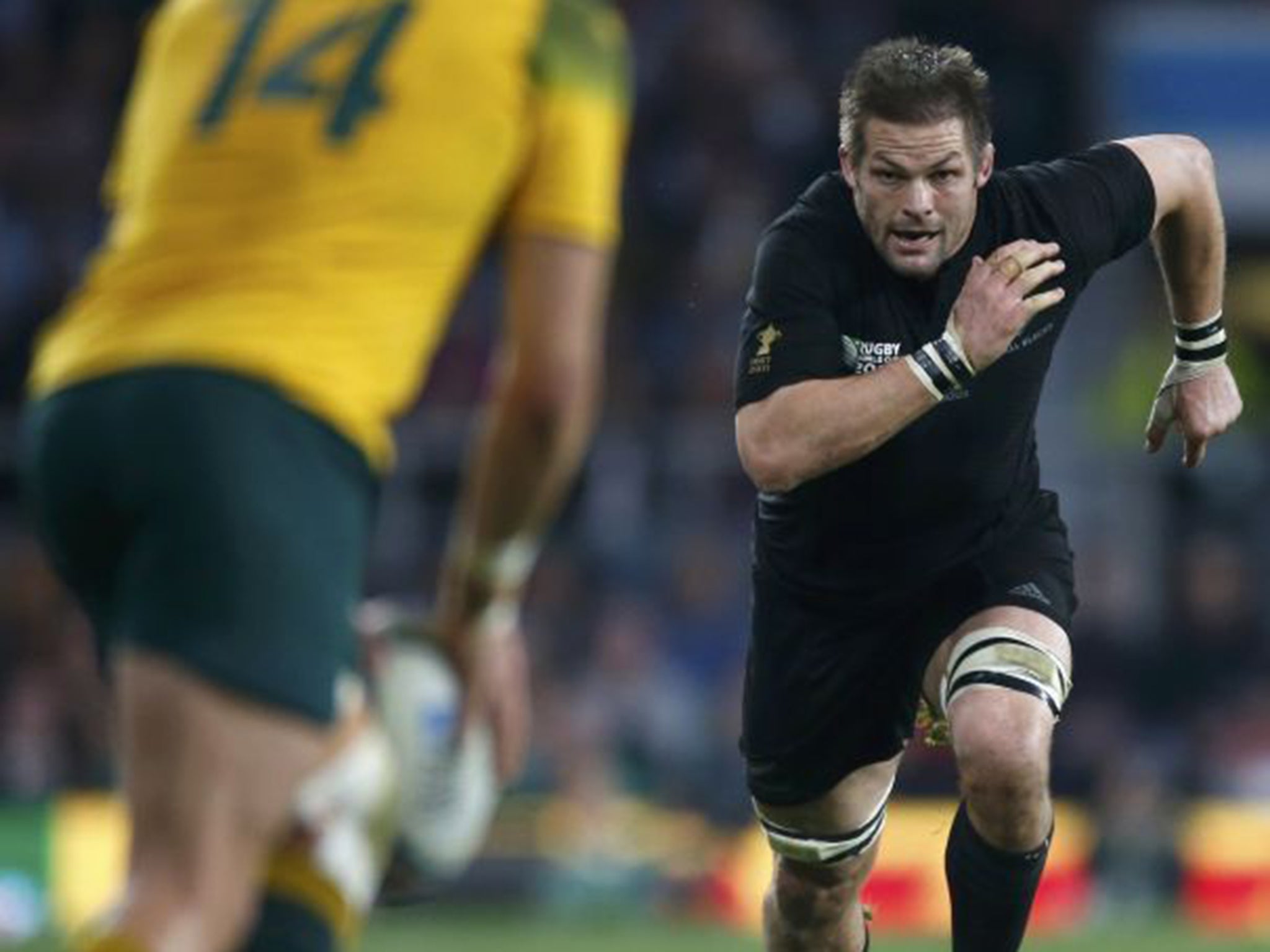RWC Final 2015 - New Zealand vs Australia: Richie McCaw’s superb judgement was key to victory
His performance in the final was his finest of the tournament, and it had to be because Australia’s back row were a match for New Zealand

Your support helps us to tell the story
From reproductive rights to climate change to Big Tech, The Independent is on the ground when the story is developing. Whether it's investigating the financials of Elon Musk's pro-Trump PAC or producing our latest documentary, 'The A Word', which shines a light on the American women fighting for reproductive rights, we know how important it is to parse out the facts from the messaging.
At such a critical moment in US history, we need reporters on the ground. Your donation allows us to keep sending journalists to speak to both sides of the story.
The Independent is trusted by Americans across the entire political spectrum. And unlike many other quality news outlets, we choose not to lock Americans out of our reporting and analysis with paywalls. We believe quality journalism should be available to everyone, paid for by those who can afford it.
Your support makes all the difference.When I played against Richie McCaw on the 2005 Lions tour I thought he was just another outstanding back row that New Zealand have produced for what feels like centuries.
But never in a million years would I have predicted what he would go on to achieve, and what he would become. The man has won 131 Test matches and that record will never be equalled.
He saved his best for last. His performance in the final was his finest of the tournament, and it had to be because Australia’s back row were a match for New Zealand.
In Michael Hooper, David Pocock and Scott Fardy the Wallabies have a unit that is the equal of any in world rugby. They work as a tag-team, with Hooper and Pocock often doubling up to effect a turnover. Fardy is their version of Richard Hill, the glue that binds it together. To my mind, those three are the reason Australia were even in the final.
New Zealand will get the plaudits but the Australian back row gave a masterclass in decision-making and technique. They were that good.
So how did New Zealand win? Well, in the back row they matched them – and that was enough.
Jerome Kaino, who like Fardy is very under-rated, set the tone with a brutal hit after 28 seconds. Kieran Read seemed to be suffering from an ankle injury but I was still impressed at what he put in.
But McCaw was special. Take the opening try. I counted that he was involved on six separate occasions during that move, with the sixth being the final pass he slipped for Nehe Milner-Skudder to score. That takes some doing, and it also demonstrates what sets McCaw apart – his decision-making.
In the modern game everyone has good contact skills so the key is deciding when to go in to a ruck and when to stay out. It’s about timing.
McCaw often gets in the wrong position but senses when the referee is about to put the whistle to his lips and gets back onside.
He is also very obedient and respectful. If the referee shouts “move away” McCaw will, but a minute later he’ll say: “I don’t know if I was in the wrong position there”, smile and walk away. That puts doubt in a referee’s mind. They wonder if he knows the law better than they do. He’s just so clever at the way he does it.
While I was watching the final I couldn’t help thinking how we need our own McCaw or Hooper in the northern hemisphere. We need to get our attacking structure right – and I thought England were doing that until the tournament started – but when you see our back rows you see lots of big, strong ball carriers.
We need to define what we want our No 7 to be, and I wonder if Australian great George Smith – now at Wasps – will teach us a few lessons over the coming season. That debate will run and run.
But in terms of this World Cup there can be no doubt that the best team won. New Zealand were my tip before the tournament started, and it is the romantic ending for those All Black greats who are walking away, with Dan Carter superb.
But I have a hunch McCaw might stick around. I was 36 when I played on the Lions tour in 2005 and McCaw will be the same age when the Lions head back to New Zealand in two years’ time.
I have a feeling he’ll still be there, clad in black and making a nuisance of himself.
Good luck Richie. Well played.
Join our commenting forum
Join thought-provoking conversations, follow other Independent readers and see their replies
Comments